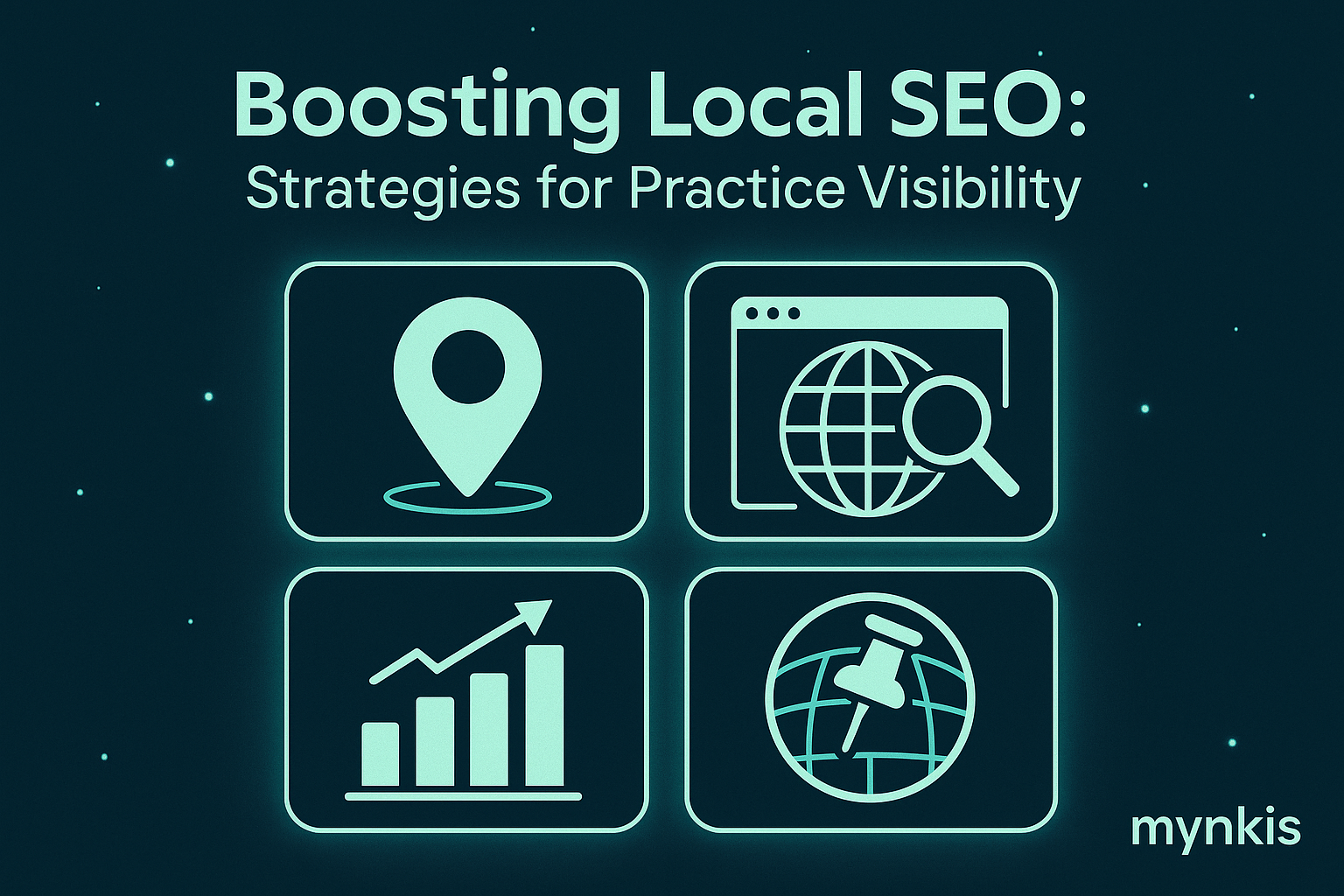Schedule a Demo
Local SEO isn't just a buzzword; it's a strategic necessity for practices wanting to thrive in their community. My experience working with diverse operations from law firms to medical practices has shown me the importance of local SEO in drawing in clients from your immediate area. By optimizing your website for local search, you’re not only improving your online presence but also ensuring that the people who need your services can easily find you.
Local SEO enhances your website's relevance for geographically related searches, turning you into a local authority. It's about claiming your spot on the map, literally and figuratively. With a well-implemented local SEO strategy, you could see a notable increase in targeted traffic, translating directly into client conversions. But how does one harness the power of local SEO effectively?
One cannot discuss local SEO without emphasizing the critical role of Google My Business (GMB). This is your first and perhaps most powerful tool for local visibility. Ensure your GMB listing is accurate, complete, and up-to-date with your practice’s address, phone number, and business hours. Including high-quality photos can increase your appeal and trustworthiness.
A key feature of GMB is the ability to collect and showcase customer reviews. Encourage your clients to leave reviews, as positive feedback not only boosts your local SEO but also builds trust with potential new clients. Moreover, responding to reviews—whether they are positive or negative—demonstrates your practice's dedication to client satisfaction and can improve your local search rankings.
Your website is your digital storefront. Optimizing it for local search means infusing geographically relevant keywords throughout your site. I've guided practices to include city or neighborhood names in titles, meta descriptions, and within the content itself. It creates a natural alignment with what local searchers are typing into search engines.
Schema markup is another powerful tool in the local SEO arsenal. By implementing it on your site, you tell search engines directly about your practice’s location and hours of operation. This can significantly enhance the visibility of your business in local searches and improve the richness of the search results with a knowledge panel.
Content tailored to the local audience can make your practice stand out. Whether it's a blog post about a local event or a landing page specifically created for different neighborhoods in your service area, localized content can drive more qualified traffic to your site.
Behind the scenes, technical SEO plays a crucial role in local search success. Ensuring your website is mobile-friendly is non-negotiable, as many local searches are performed on mobile devices. Beyond this, factors like site speed and secure connections (HTTPS) impact both user experience and SEO rankings.
Creating localized pages for different services or areas you serve within your region can amplify your local reach. These pages should be SEO-optimized, unique in their content, and deliver what local searchers need—relevant information that's promptly accessible.
Citations and local business listings are the groundwork of local SEO. Consistency across platforms where your practice is listed—like Yelp, Bing Places, and local directories—reinforces your location and services. Mismatches in your business information can confuse search engines and hinder your local search rankings.
Building links from reputable local sources can significantly boost your local SEO efforts. Engaging in community events or sponsoring local causes are ways to naturally gain mentions and links from other local websites. These links act as a vote of confidence, enhancing both your SEO and your community presence.
I've helped many practices leverage their involvement in local business associations or chambers of commerce to secure backlinks. Sometimes, even a shout-out from a local blogger or influencer can enhance your local relevance and SEO profile.
It's essential to track the effectiveness of your local SEO strategy. Use tools like Google Analytics and Google Search Console to monitor your progress. Look at local-specific metrics, such as the number of visits from local searches or clicks from your GMB listing.
Regular analysis of these data points allows you to adjust your strategies and optimize further for better performance. Maybe you notice specific keywords or landing pages performing better, or perhaps it’s time to strengthen your presence in a new neighborhood—your data will guide these decisions.
Local SEO isn't a set-it-and-forget-it endeavor. Markets evolve, search algorithms update, and your practice must adapt. Keeping up with the latest trends in local SEO is akin to tending to a garden; it requires regular care and adjustments based on the climate.
Embracing emerging technologies like voice search can position you ahead of the competition. Adapt your SEO strategies to capture these new search behaviors. Also, remember that your audience evolves; they might start looking for services in different ways or through different mediums. Stay engaged with your community to keep your finger on the pulse of local market dynamics.
